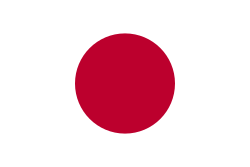Sega 32X
| Sega 32X | |
 | |
| Grundinformation | |
|---|---|
| Tillverkare | Sega |
| Typ | Tillbehör till stationär konsol (Sega Mega Drive) |
| Generation | fjärde generationen (32/64-bitarseran) |
| Lansering |
|
| Hårdvara | |
| Media | 32X Spelkassett |
| Övrigt | |
| Föregångare | Mega-CD |
Sega 32X(japanska: スーパー32X?, Suupaa 32X ), är ett tillbehör till Sega Mega Drive . I Japan kallades den Sega Super 32X, i USA Sega Genesis 32X och i Europa Sega Mega Drive 32X.[1]
Historia
I och med att Super Nintendo släpptes hade Sega som mål att fortfarande ha ett tekniskt övertag. Det resulterade i Sega Mega-CD som dock inte sålde så bra som Sega hade hoppats på. Den 8 januari 1994 bestämde chefen för Sega i Japan, Hayao Nakayama att tillverka en 32-bit cartridge-kassettbaserad konsol som skulle släppas till julen 1994. Konsolen gick under namnet Project Jupiter och utvecklades framförallt i USA. Sega kom fram till att projektet skulle bli en utökning till Mega Drive-maskinen men med fler färger och en 32-bitsprocessor. Projektet utvecklades samtidigt som Sega i Japan utvecklade Sega Saturn. Så fort Sega Saturn var färdigutvecklat dog i stort sett intresset för 32X bland utvecklare och potentiella köpare, som en följd av tillbehörets korta livslängd hann bara ett fåtal spel släppas.
Sega Neptune var en osläppt spelkonsol som bestod av både Sega 32X och Sega Mega Drive. Med denna nya konsol hade 32X stått på egna ben. Namnet Neptune var möjligen endast ett utvecklingsnamn.
I och med att Sega Saturn släpptes lade Sega ned projektet då två konsoler släppta under samma tid kunde leda bort uppmärksamheten.
Specifikationer
- Processor: 2 st. Hitachi SH-2 32-bitars RISC-processorer, vardera med en klockfrekvens på 23 MHz och 20 MIPS
- Grafikprocessor: Genesis 32X VDP
- Färgdjup: 32 768 färger på skärmen samtidigt
- RAM: 256 KiB
- VRAM: 256 KiB (två frame-buffers à 128 KiB vardera)
- Ljud: 10-bitars pulsbreddsmodulering i stereo, blandas med Mega Drives och ev. Mega-CD:s ljudkanaler
- Spellagring: 32X Spelkassett, i princip samma som Mega Drives spelkassetter.
Se även
Källor
Fotnoter
- ^ ”Sega 32X (1994 – 1995)” (på engelska). Museum of Obsolete Media. 24 juli 1994. http://www.obsoletemedia.org/sega-32x/. Läst 22 maj 2017.
Externa länkar
| ||||||||||||||||||||
Media som används på denna webbplats
The Flag of Europe is the flag and emblem of the European Union (EU) and Council of Europe (CoE). It consists of a circle of 12 golden (yellow) stars on a blue background. It was created in 1955 by the CoE and adopted by the EU, then the European Communities, in the 1980s.
The CoE and EU are distinct in membership and nature. The CoE is a 47-member international organisation dealing with human rights and rule of law, while the EU is a quasi-federal union of 27 states focused on economic integration and political cooperation. Today, the flag is mostly associated with the latter.
It was the intention of the CoE that the flag should come to represent Europe as a whole, and since its adoption the membership of the CoE covers nearly the entire continent. This is why the EU adopted the same flag. The flag has been used to represent Europe in sporting events and as a pro-democracy banner outside the Union.Författare/Upphovsman: 32X, Licens: CC-BY-SA-3.0
A PAL Mega Drive combined with a PAL 32X to build up the classic Mega Drive 32X.



